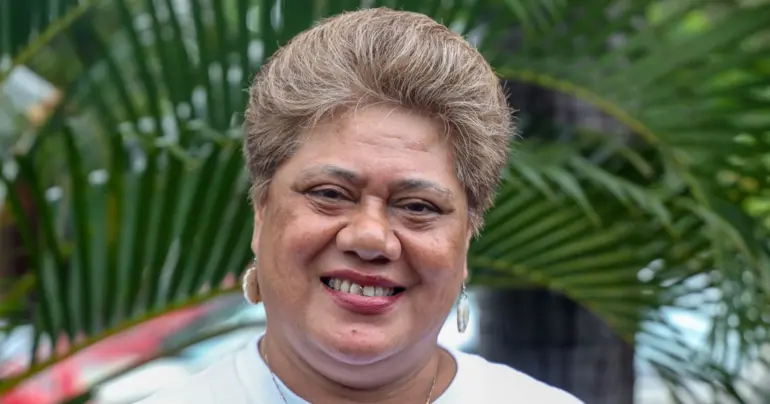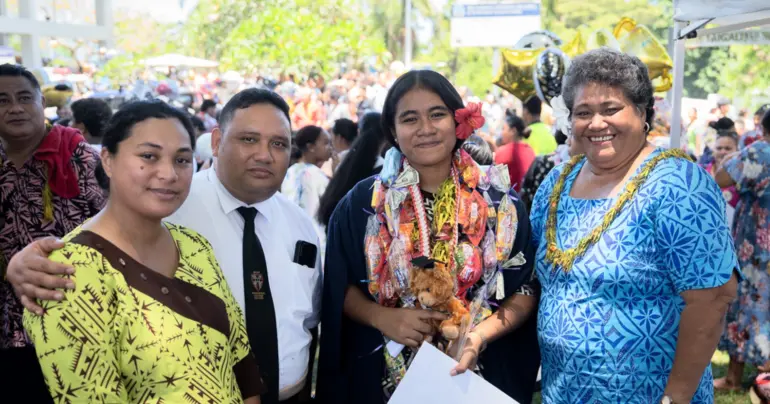Rising S.T.I. rates alarming: Health Ministry
 By Joyetter Feagaimaali'i
•
27 February 2020, 1:00PM
By Joyetter Feagaimaali'i
•
27 February 2020, 1:00PM
The Ministry of Health has warned of an alarming increase in the spread of sexually transmitted infections (S.T.I.s) such as syphilis across Samoa.
The Ministry of Health’s 'Global A.I.D.S. Monitoring Report' for 2019 is its eighth report to the Joint United Nations Programme on H.I.V./A.I.D.S. (U.N.A.I.D.S.).
The report found that rates of chlamydia across the country have remained stubbornly high over the past decade.
Comparatively high rates of S.T.I.s in Samoa also potentially increase the risk for the transmission of the Human Immunodeficiency Virus (H.I.V.), the authors found.
“Chlamydia rates have been largely unchanged, especially in the past four years (26 per cent in 2015 and 24 per cent in 2017)," the report says.
Positivity rates for Hepatitis B and C are also largely the same for this period, states the report
“This high S.T.I. positivity has always been identified as a population vulnerability to future H.I.V. epidemics.”
The report says increases in testing for chlamydia are correlated with growth in detection of other sexually transmitted infections.
“From 2011-2013, detected chlamydia cases [were at their] highest, but decreased testing in subsequent years led to a decline in the number of cases detected, and therefore treated," the report said.
“Infections had started to decline in 2013 and procurement issues of the test kits for chlamydia contributed to the decline in testing.
"A national presumptive treatment protocol for antenatal mothers and their partners was implemented in 2015 to reduce the rates and prioritised over limited resources available to allocate to testing.
"However, the other components of a presumptive treatment intervention (aggressive health promotion and education and a national strategy to reach male partners of ANC mothers) were not implemented alongside the treatment protocol.”
In 2016, there was no testing conducted in any setting, the report found. Testing resumed in 2017 but not as a routine component of antenatal care as it had been previously.
In 2018, Chlamydia testing was mostly reincorporated into antenatal care assessments, which led to a considerable increase in detected cases.
That year's testing revealed that recent rates of chlamydia are comparable to those in 2010, meaning its prevalence has remained unchanged.
“From this data we can reasonably conclude that the presumptive treatment protocol has failed, and new interventions are needed to reduce infections," the report says.
“Increasing testing coverage is an essential component of moving forward with any intervention in order to monitor the impact of programs.”
Rates of syphilis - a rare and much more serious sexually transmitted infection - have been gradually increasing in Samoa since 2014 to reach a level of 1.1 per cent in 2018.
“Syphilis is a comparatively rare infection with rates around 1 per cent in most populations. Since 2010, detected syphilis cases have remained well below 1 per cent," the report said.
“However, in 2015 the number of detected cases more than doubled, despite [a relatively] constant number of tests.
“The number of detected cases more than doubled again in 2016, and has been steadily increasing from 2017-2018, putting the overall [infection] rate above 1% (1.11% in 2018).
“Though this may be partly due to significant increasing in testing, the persistent exponential increase in cases since 2015 is likely due to an outbreak.
“For this reason, syphilis is a high priority along with Chlamydia and H.I.V.”
Congenital syphilis transmission, from mother to baby, is also on the rise.
Transmission of the disease during pregnancy is a serious, disabling and often life threatening infection for newborns. Treatment must occur before birth to maximise infants' best chances of survival, which means mothers must be tested and treated before delivery, such as with antenatal blood check-ups.
There were two new confirmed congenital syphilis infections in 2018, the report found.
 By Joyetter Feagaimaali'i
•
27 February 2020, 1:00PM
By Joyetter Feagaimaali'i
•
27 February 2020, 1:00PM











